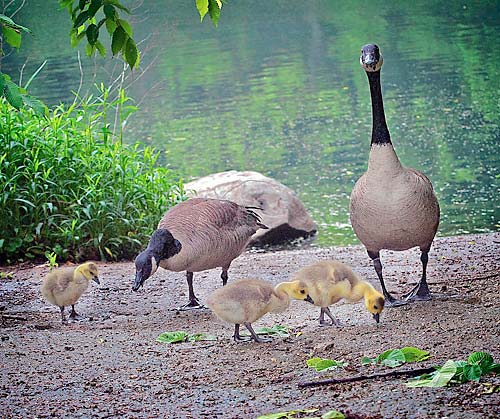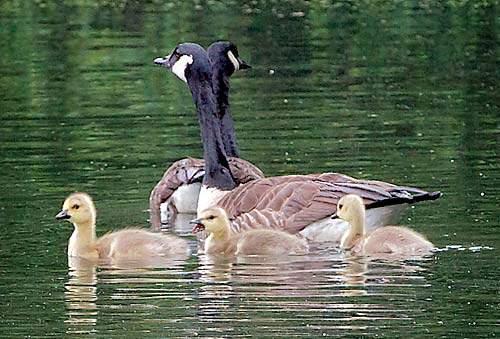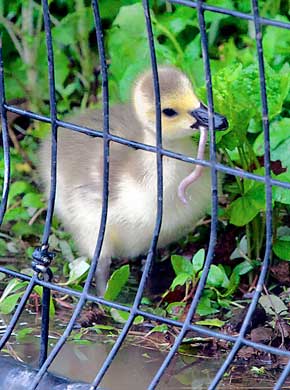And then there were three.
One of Prospect Park’s miracle goslings has gone missing — and Mother Nature is a prime suspect.
Heavy weekend rains, illness or a predator apparently killed one of four goose babies, born against all odds in the wake of last year’s goose slaughter and this year’s effort to humanely keep surviving geese from reproducing.
“It’s survival of the fittest out there — it happens,” said wildlife advocate Mary Beth Artz. “It’s just sad.”

The original foursome was the surviving litter from a sextet of eggs that had been discovered near Dog Beach inside the park.
In early May, all six eggs were coated with corn oil in an attempt to humanely destroy the developing embryos. But nature always finds a way, and all six eggs hatched — though two goslings died almost immediately of natural causes.
The remaining four goslings quickly became Prospect Park’s unofficial children, a living symbol of the horror of last year’s federal slaughter of more than 300 geese, killed in the name of aviation safety.
“They represent hope for new life,” said park watchdog Johanna Clearfield.

After the birth, The Brooklyn Paper quickly sponsored a naming contest and cooed for page after glorious page. The New York Times followed with a its own write-up, and a new group called Goose Watch formed to conduct “stakeouts” in the park to protect the baby birds from another federal slaughter.
But on Sunday — one of six rainy days last week — park-goers noticed that Brooklyn’s famous goose family was short one squawker.
No feathered bodies have washed to shore, nor have there been signs of “fowl play” — but healthy gosling almost always stick with their parents.
“If they are injured or weak they sometimes get left behind; but they don’t last long in those cases,” said Jane Austin, a biologist who works for the United States Geological Survey. “It’s likely that a predator got it.”






















